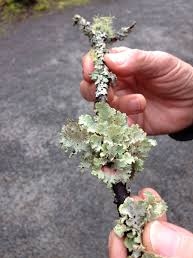Undergraduate Research Program
The Kentucky Academy of Science makes available Undergraduate Research Funds for research planned and conducted by undergraduate students of Kentucky colleges and universities under the supervision of a faculty member. Faculty sponsors/researchers and undergraduate awardees must be members of the Kentucky Academy of Science. Currently, two undergraduate research grant programs are available:
Undergraduate Research Supply Grants:

These grants are intended to provide modest support for supplies and expendables necessary for student research not normally available from the host institution. This fund does not provide support for indirect costs, salaries, or conference travel. Awards of up to $500 each will be available as funding allows.
Summer Undergraduate Research Grants:
These grants are intended to provide support for students engaged in faculty-supervised research during the summer months. Allowable budget items include supplies, equipment, travel directly related to the research project, and a summer stipend for the student in accord with policies and amounts normally approved at the institution of the principal investigator(s). Awards of up to $3000 each will be available as funding allows.
Funding recommendations will be announced after the winter Board meeting. Students are expected to present their research at the annual meeting of KAS.All awards are made to the institution of the faculty supervisor/researcher. Institutional cost-sharing and support are encouraged.
Please refer to the Terms and Conditions for all KAS Grants
2024 Grantees
UNDERGRADUATE SUMMER RESEARCH GRANT
Assessment of biodiversity in freshwater lotic Galápagos habitats (San Cristóbal) through the use of eDNA metabarcodin
Dr. Ben Brammell, Asbury University
2023 Grantees
UNDERGRADUATE SUMMER RESEARCH GRANT
Development and validation of qPCR assays for three species of Plethodon salamanders
Sara Brewer, Asbury University
Climate change effects in developmental timing and reproduction in Rhagoletis flies
Alycia Lackey, University of Louisville
UNDERGRADUATE RESEARCH SUPPLY GRANT
Cytotoxicity of Anthracyclines, DNA Topoisomerase 2 Inhibitors, in Escherichia coli
William Mackay, Campbellsville University
New practicable, eco-friendly methods in the generation of sustainable transparent wood materials
Oscar Hanson, Berea College
2022 Grantees:
UNDERGRADUATE SUMMER RESEARCH GRANT
Development of a nanobody evolution platform
Mark Vincent dela Cerna, Bellarmine University
UNDERGRADUATE RESEARCH SUPPLY GRANT
The Hunt for Novel Antimicrobials
Larry Porter, Bluegrass Community & Technical College
2021 Grantee:
UNDERGRADUATE SUMMER RESEARCH GRANT
Studying Structural Dynamic Properties of KCNE3 in Lipid Bilayers: An Undergraduate Summer Research Project
Indra Sahu, Campbellsville University
Archive of KAS Research Grant past recipients 2006-2021
Contents of Proposal:
Applications shall include the following information:
- Project abstract (250 words)
- Project description (1000 words). This should include:
- Major Objectives
- Literature review and rationale
- Research methods including experimental design, procedure and analysis
- Role of student in project
- Significance
- References
- Facilities and equipment required and availability
- Detailed budget - uploaded as attachment Subdivide the budget into stipends, travel, equipment, supplies and expendables, and other costs. Each category should be itemized and justified.
- Brief curriculum vitae of student and faculty sponsor (two-page maximum each)- uploaded as attachment
- Endorsements and/or letters of institutional support are required- - uploaded as attachment
- Projects involving human or animal subjects must submit appropriate institutional review board approval prior to funding.
Accountability
Grant Period: The date shown on the award letter is considered the start date. All awards end one year after the date indicated on the letter. Grant recipients must be members of the Kentucky Academy of Science. All awards are made to the institution of the faculty supervisor/researcher. At the close of the grant period, any unspent funds must be returned to the Kentucky Academy of Science. KAS Grant funds do not provide support administrative overhead or other such costs not directly associated with the conduct of research.
Final Report: A project for which an award has been made is not complete until a written final report has been submitted and approved. This report shall detail objectives of the research as actually executed, general description of methods used, results obtained, and a summary of the disbursements made by budget categories listed in your proposal. The report should not exceed six pages, exclusive of papers submitted for publication and abstracts for meetings.
Three copies of the report shall be filed to the following KAS officers, not later than April 15 of the year following the award: KAS Executive Director (executivedirector@kyscience.org); the Chair of the Research Grants Committee, and the KAS Treasurer. Contacts for current Research Grants Chair and Treasurer are available at the KAS website. The approval of future applications by the student researcher or the faculty sponsor will not be granted if a complete final report is not on file.
Undergraduate Research Program award recipients are expected to present their research at the annual meeting of KAS. The Academy requests that researchers acknowledge the sources of research funding in their research presentation. Travel for such meetings is not an allowable expense attributable to the funds awarded.
All Applications will be evaluated based upon:
- Significance of the proposed project within academic discipline, justification for the project, innovation, advancing educational quality, and problem-based focus (30 points)
- Feasibility of the project given available resources and major objective(s), methodology, plan of operation, timetable, expected products and results (30 points)
- Qualifications of the student and faculty sponsor who will develop and carry out the project objectives (15 points)
- Institutional support, equipment, and/or materials available to carry out the project objectives (15 points)
- Budget and cost-effectiveness. Elements considered include the degree to which the project maximizes the use of limited resources and educational value of the dollar (10 points)
